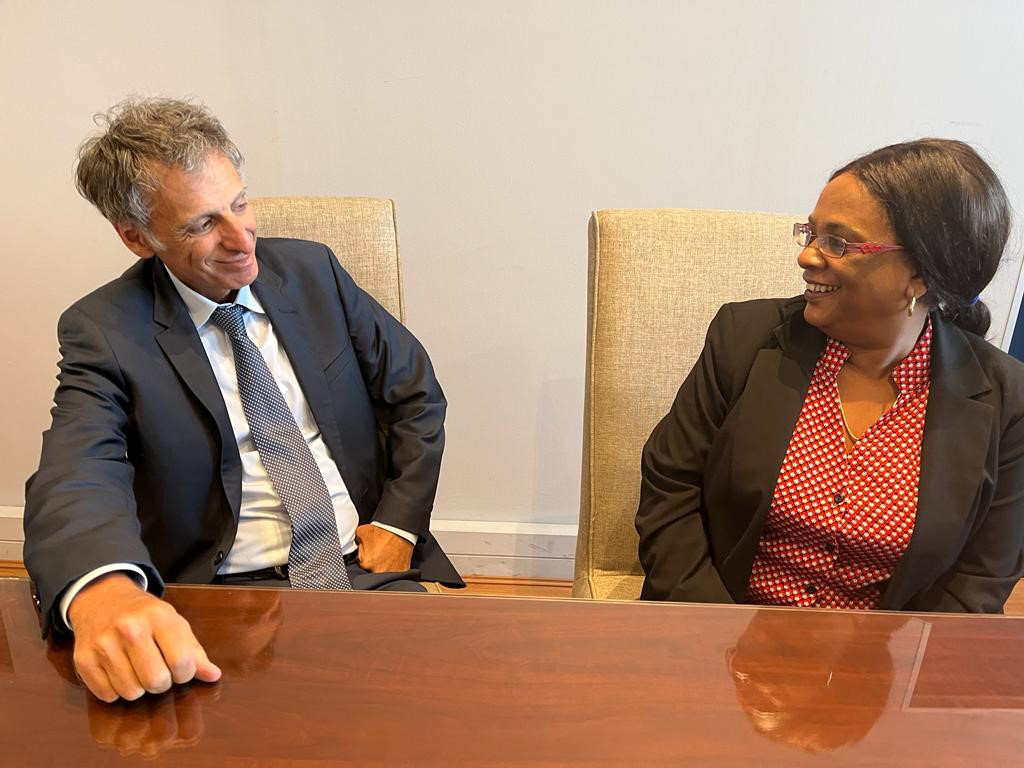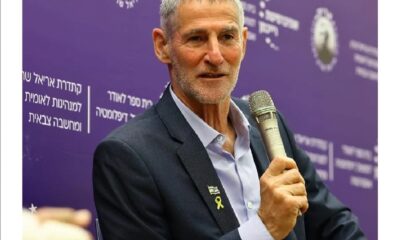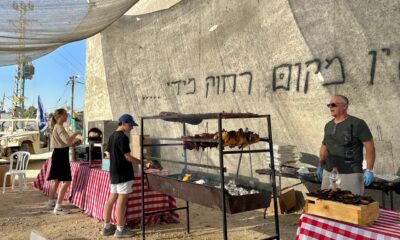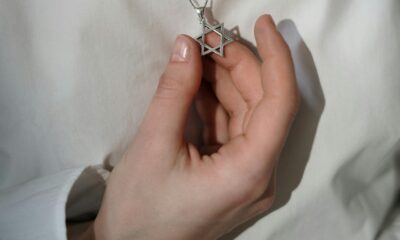
Israel

Ambassador gets to know SA “outside of government statements”
“The South African Jewish community is important to the state of Israel and the country values its support,” says Ambassador Belaynesh Zevadia, the head of the Southern Africa department in the Israel ministry of foreign affairs.
Zevadia was in South Africa this week on a whistle-stop tour “to get a taste” of life here and meet different groups and communities.
She was appointed to the position seven months ago. Her role is to liaise with three Israeli ambassadors in Africa – Israeli ambassador to South Africa, Eli Belotsercovsky; Israeli ambassador to Angola, Shimon Solomon; and Israeli ambassador to Zambia, Zimbabwe, Botswana and Namibia, Ofra Farhi.
These ambassadors report to her about their activities and together, they plan projects and activities to strengthen ties and co-operation between their respective countries and Israel.
Zevadia, who was born in Ethiopia, said she believes it’s important to come here to engage with people and form an understanding of differing views.
“It has been a dream of mine to visit South Africa for years, especially since I spent my childhood in Ethiopia and went on to study African Studies which involved learning a lot about this country,” she said. “Talking to people, getting a feel of what they say and believe, will help me understand and see for myself.”
Zevadia, who has her own astonishing personal story of struggle, resilience, and triumph, was hosted by Belotsercovsky.
“In Israel the idea of South Africa is mostly formed by South African government statements,” Belotsercovsky said. “So, it’s important for her to understand that people in South Africa are very friendly, there’s a great deal of interest to work with Israel, to see how we can co-operate. There’s a great deal of awareness of the achievements of Israel and an interest to see how these achievements can be relevant to the developmental challenges of this country and to the lives of ordinary South Africans.”
During her short stay, Zevadia visited Johannesburg, Cape Town, and Eswatini. She met representatives from communal organisations such as the South African Jewish Board of Deputies, the South African Zionist Federation, and the South African Friends of Israel.
She has had an opportunity to engage with representatives of the Democratic Alliance as well as the Inkatha Freedom Party, the African Christian Democratic Party, and various church and religious groups as well as the media.
According to Belotsercovsky, at the time of going to press the South African government hadn’t responded to the Israeli embassy’s request to introduce Zevadia to officials from the department of international affairs and cooperation.
Zevadia was born in a Jewish village near Gondar in Northern Ethiopia. She was the youngest of eight children who all harboured a deep yearning to make Jerusalem their home one day, all taking very different routes to get there.
When she was 17 years old, her parents decided that she must make aliya and join her brother and sister who were already there.
“It was very difficult time,” she said. “I worried constantly about my family back home. I had to learn Hebrew from scratch, and when I went to university, I recall writing my notes in my mother tongue and later translating into English and then into Hebrew.” In spite of these difficulties, she obtained her Masters in African Studies and Anthropology at Hebrew University.
Two of her older sisters and their young families walked for nearly a month to a refugee camp in Sudan run by the Israeli government and United States Jewish organisations. It took many years for her whole family to be reunited once again in Israel.
Her father, who was the equivalent of the chief rabbi of Ethiopia in their village, was wheelchair bound and elderly when he finally made it to Israel, where he lived his remaining days in Be’er Sheva before dying three years later.
Her brother, Yosef, was imprisoned for three years during Ethiopia’s Marxist period where he was taken from his school after teaching Hebrew and Judaism. He was her mentor and teacher growing up.
In 1993, Zevadia began her diplomatic career at the Israel ministry of foreign affairs cadet course and served in various positions around the world until she was appointed in 2012 to serve as Israel’s ambassador in Ethiopia – the first Israeli woman of Ethiopian origin to achieve the title of ambassador.
At the time, she said, “I left Ethiopia as a girl, now I’m returning as ambassador.” Zevadia met Israeli President Shimon Perez shortly before taking up the position. He reportedly said, “I’m proud of you and your work. You’re the first blossom of the Ethiopian community. The entire nation congratulates you.”
Asked how she felt about the South African government’s hostility towards Israel she said, “Sad, very sad. When you read the news from outside, you wonder if everybody is like that. However, when you come here and meet friendly people, you see that we do have friends here in South Africa. Not everybody is against Israel, that’s only politics.”
The ambassador said she was hoping to gain a sense of how people felt on the ground about Israel, to meet people from different communities, and to understand the situation.
“To be here physically, to see what’s happening here as opposed to only hearing about it on the news. Even to see different lifestyles of people here is something good to know,” she said.
She said the Jewish community here was “unique for us”.
“Even though the situation regarding Israel makes it difficult, the community never stops standing with Israel. Its contribution is meaningful, and Israel cares deeply for the Jewish community.”
Both ambassadors agree that the strong connection with Israel is “something quite unique in a sense that you don’t have so many communities where you can feel it to such an extent”, according to Belotsercovsky.
Zevadia’s wish for the South African Jewish community was to stay strong and united, supporting Israel whichever way possible.
She said it was important for the community to raise its voice when the need arose, and to react immediately to negativity, which was “very important to us as we are there in Israel and you are here”.
She said she would try to use the opportunity to see how Israel could share its experience and expertise in various fields in areas relevant to average South Africans such as agriculture, water management, food security, climate change, and cyber security.










